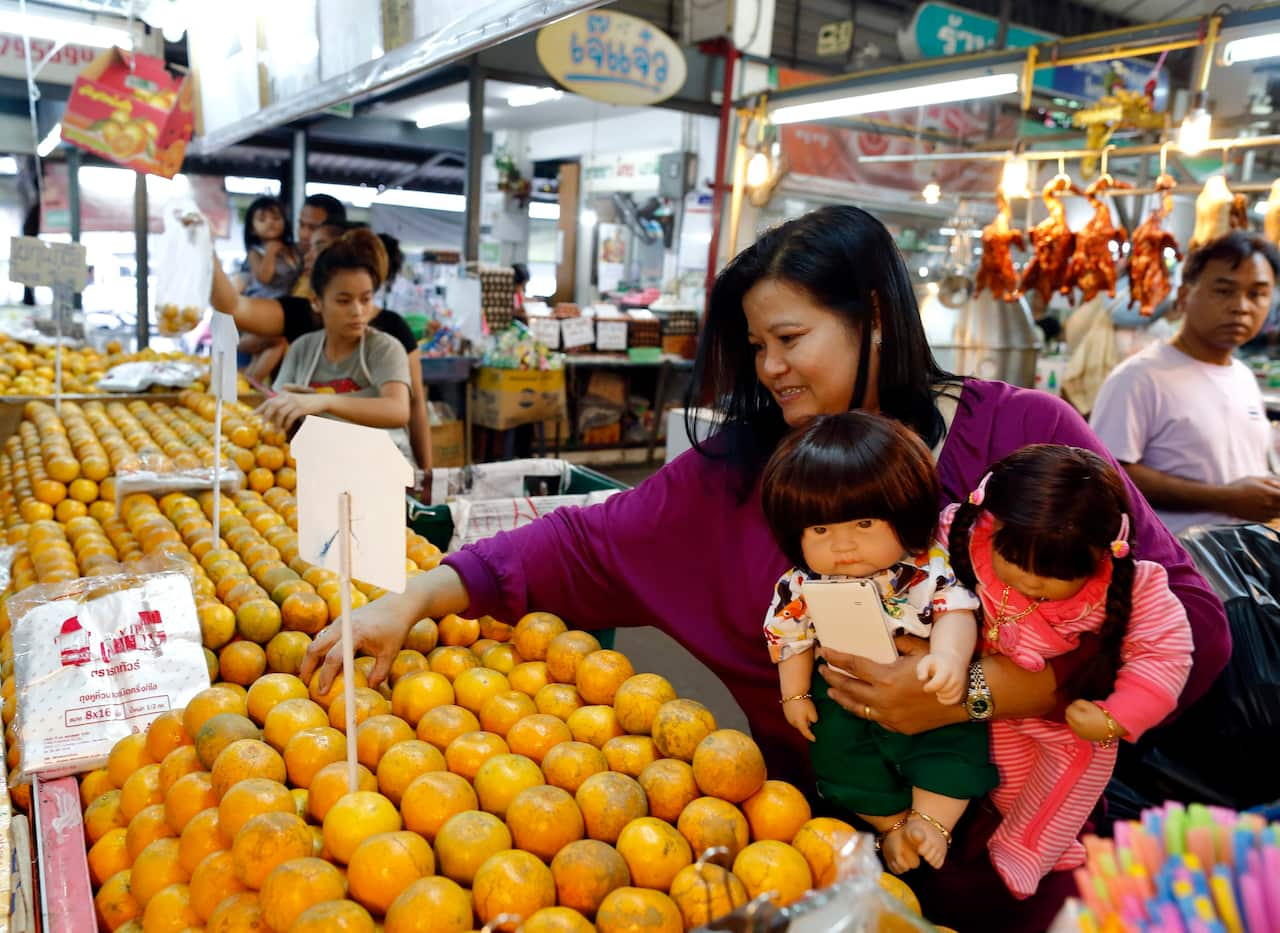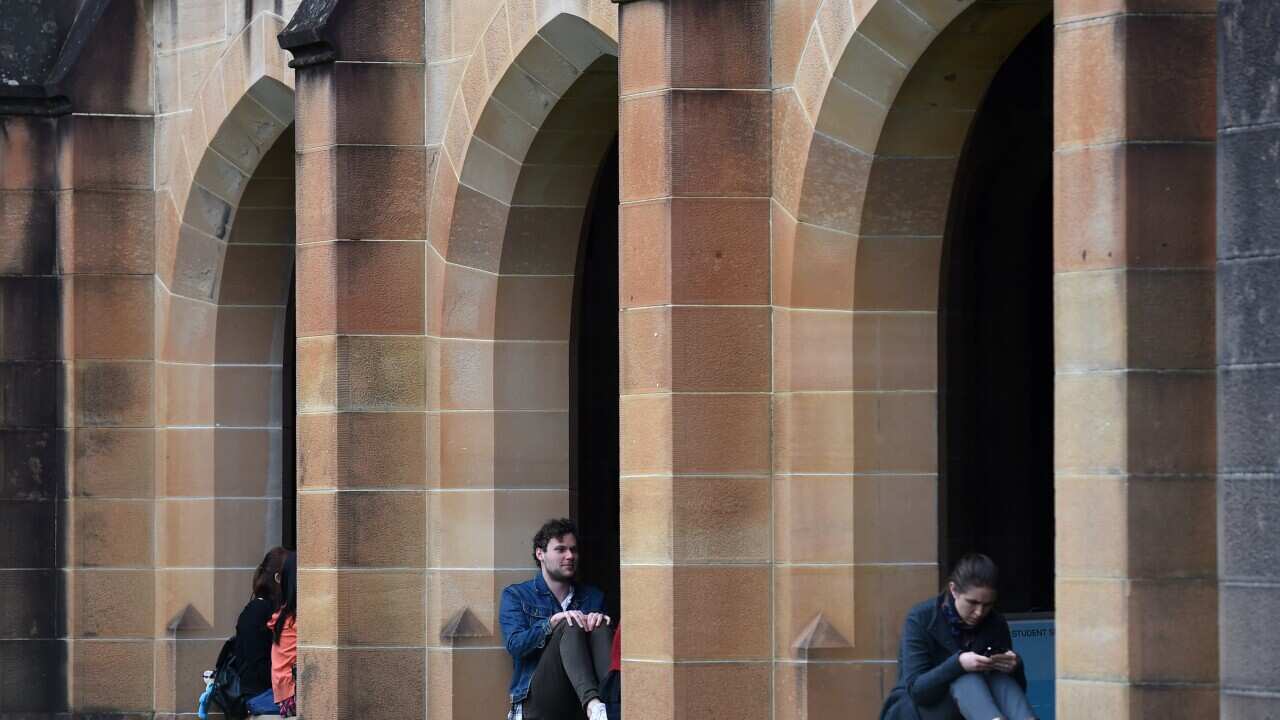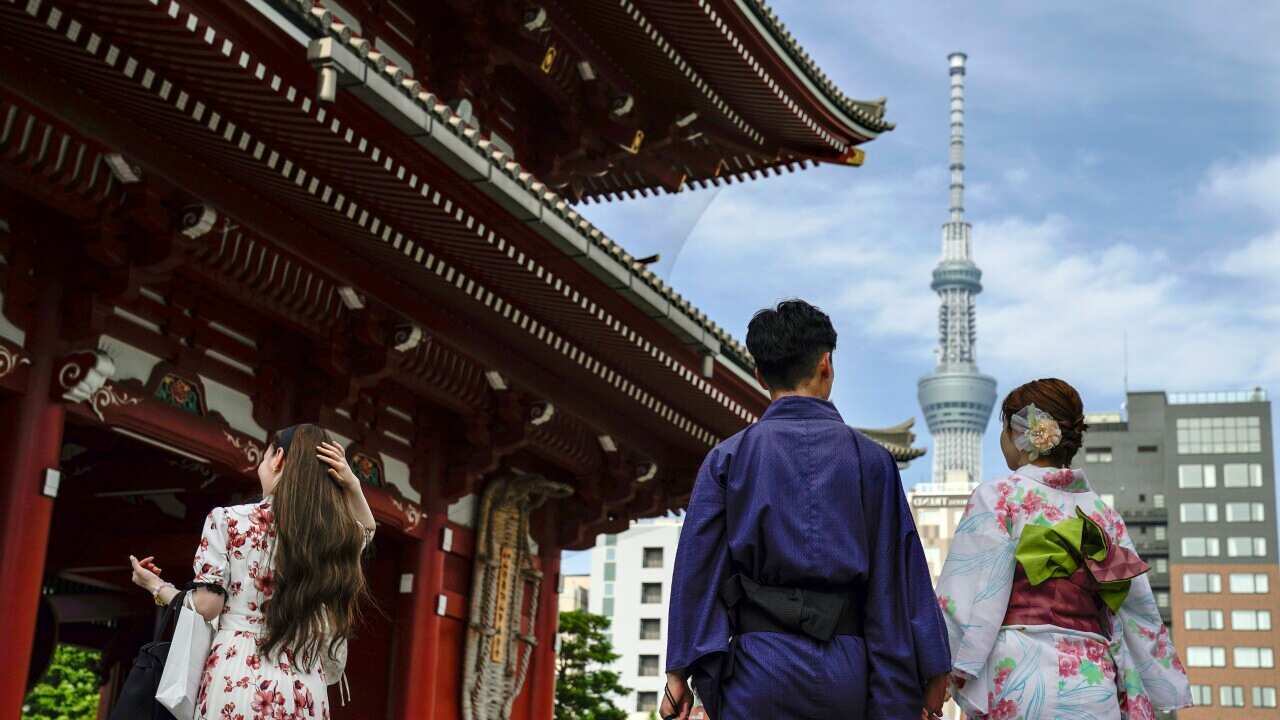Thailand, a predominantly Buddhist country of 66 million people, is modernising rapidly but remains highly superstitious.
Its Buddhist beliefs often exist side-by-side with animism, astrology and 'black magic' rituals.
‘Luk Thep’, which translates to ‘Child Angel’, is the latest craze taking the country by storm.
Devotees buy the infant-sized rubber dolls and invite benevolent spirits to possess them, hoping they will bring good luck and wealth.
Some say the trend reflects anxiety over Thailand's struggling economy and a tendency to turn to animist beliefs during times of uncertainty. Some owners have brought their dolls to temples for monks to instill powers in them.
Some owners have brought their dolls to temples for monks to instill powers in them.

Thai devotee Ratchada Mahanavanont holding her Child Angels dolls as she looks for oranges at a market in Bangkok, Thailand. Source: AAP
“Before I make the auspicious markings, I ask them what is troubling them that caused them to do this (raise child dolls),” said 64-year-old Phra Winai Thidtapanyo, a Buddhist monk at Bua Khwan Temple who has already blessed over 30,000 dolls since last year.
“After I preach to them and they understand my preachings, I think ok, I will do it as moral support to help them get through (the problem).
“Since then, people have constantly been coming to me.”
Thailand has been ruled by a junta since a May 2014 coup.
Its generals have struggled to revive the country's export-dependent economy.
Following a 2006 coup, some Thais turned to plasticine amulets that promised to make their owners extremely rich.
But many now believe the ‘Child Angel’ dolls are the key to success.
Related reading

DFAT confirms Aussie's death in Thailand
Wilairat Daengsongchroey, 17, said she has been raising her doll for around eight months.
“She gave me a better life,” she said.
“She helped me earn more income from when I earned very little. I've won many lotteries.”
Founder of the Child Angels' Club, Mananya Boonmee, said the growing interest in the dolls was also to fill up other needs.
“Part of the reason why people buy these dolls is because some people don't have kids or are not earning so much,” she told Reuters.
“But once they adopted a doll, their lives really improved.”
Ms Boonmee said her ‘Nong Petch’, or diamond doll, has helped her win the lottery by telling her in her dreams what numbers to choose.
Devotees lavish attention on their angel children - dressing and feeding the dolls as though they were real, human children.
The prices of the dolls start at 1500 baht ($59 AUS) and can fetch prices upward of 30,000 baht ($1180 AUS).
Beauty salon owner, Natsuda Jantabtim, lives with her daughter and doll, 'Nong Ruay Jung' or 'Pretty Rich' in Thai.
“I can see it in other people's eyes,” the 45-year-old said.
“I know some of them must be wondering why I am carrying a doll but I just don't care.”
And now the doll industry has really started to take off.
Thai Smile, a subsidiary of national flag carrier Thai Airways, said it would charge passengers who bring the dolls onboard and would even serve them snacks while Neta Grill, a Bangkok restaurant, advertises meals for the dolls on its Facebook page, saying it would charge their owners children's prices for its buffet.









